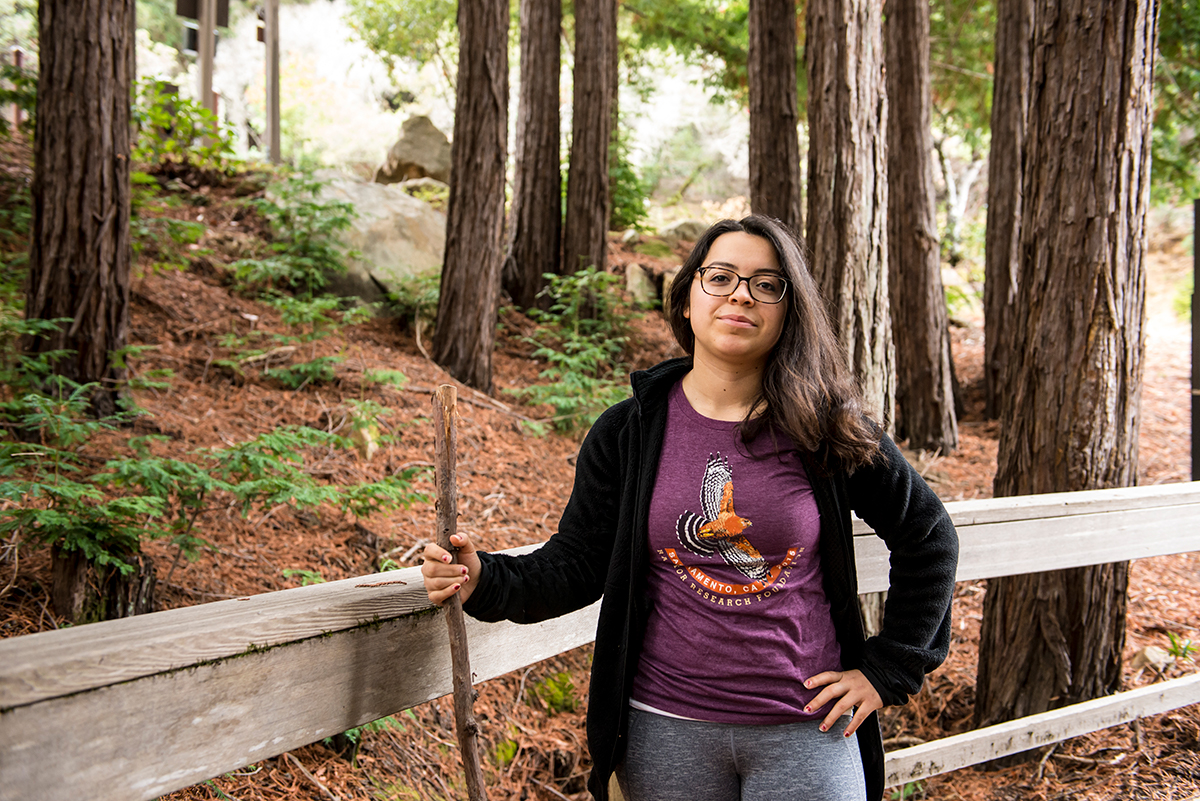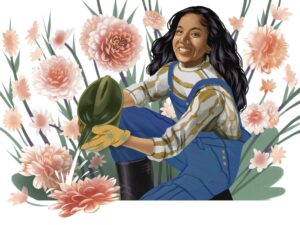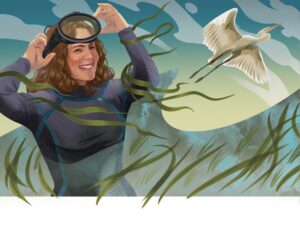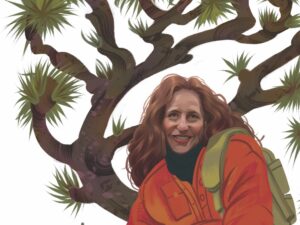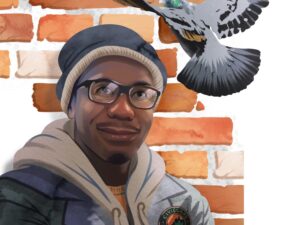Bay Nature Institute’s three Local Hero Awards—Conservation Action, Environmental Education, and Youth Engagement—are given annually to individuals selected by the board and staff of Bay Nature Institute for their outstanding work on behalf of the natural world of the San Francisco Bay Area. The 2018 awards will be presented at Bay Nature’s annual Local Hero Awards dinner on Sunday, March 25, 2018.
Sandra Corzantes knows how to find pockets of unseen nature. When I suggested we meet outdoors to talk about her efforts to connect more diverse communities to nature, she suggested Fort Funston, then led me down a dusty path and past the dog-walkers, through a tunnel of branches to a natural clearing formed underneath a tree completely hidden from the rest of the park. It’s a place she found by accident while following her dog, Mojo, but has returned to many times since. The bustling outside world may as well not be there (except for the occasional bark)—it’s a small universe apart, and an example of the kind of places and spaces Corzantes has committed to finding, stewarding, and sharing.
Corzantes, Bay Nature’s 2018 Youth Engagement Local Hero, tracks raptors with the Golden Gate Raptor Observatory and helps negotiate permission from various state agencies to track them in new and higher spots. She’s a docent with the Midpeninsula Regional Open Space District, where she works as an outdoor education leader for elementary school kids at the Daniels Nature Center at Skyline Ridge Preserve, and she volunteers for MidPen digitizing archives. She leads hikes with Latino Outdoors and volunteers with the Sierra Club’s Inspiring Connections Outdoors program. Along with her numerous nonprofit commitments, Corzantes recently received her California Naturalist certification and in 2015 started a job as a park ranger for the city of San Mateo.
Bay Nature:Let’s talk a little bit about why we’re meeting here at Fort Funston—why this particular area?
Sandra Corzantes: I found out about this place when I was living in San Bruno. I had my dog, I wanted to explore the areas around me, and this was practically in my backyard. Even though I live in Burlingame now and it’s more of a drive, this is my backyard. It’s not limited to my block or my city park. The Bay Area is my home, and within an hour’s drive I can be in a redwood forest, at a beach. As an adult I want to take advantage of these opportunities.
BN: Is the diversity what you find so interesting about Bay Area nature?
SC: There are a lot of endangered species here that aren’t found in other areas. I feel so blessed to live here. My parents were immigrants from Guatemala, so I’m first-generation Guatemalan-American. They could have gone anywhere, and we had connections in the San Francisco Bay Area, so I’m blessed enough to have been born in an area with space. I live with this mindset: I don’t want to miss out. This is why I do what I do. This is the area to do it, to make those connections.
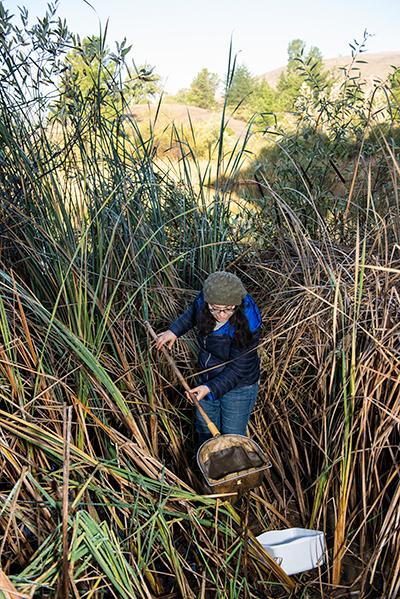
BN: What motivates you when you’re doing your work?
SC: I just know there’s a lot of healing that takes place when there’s people-to-people contact and community. At 14 I decided to become a police cadet with my local department, San Mateo, and it’s really instilled a sense of respect for teamwork and how my actions can contribute to a greater good and giving back to my community. It’s also this philosophy where you receive tenfold what you give. I live by that philosophy.
BN: How did you get involved with what you’re doing now, especially with Latino Outdoors?
SC: I got connected to Latino Outdoors because I was a docent and a volunteer with the Midpeninsula Regional Open Space District (Midpen) and an email went out: “We need docents for this hike through Latino Outdoors and Midpen, just let us know.” It piqued my interest and I thought, ‘I can totally volunteer.’ It was my first time really being a docent. I met Jennifer [Adams, Latino Outdoor’s South Bay regional coordinator]. Talking with her, seeing what the nonprofit’s mission was, I was totally in line with it. I continued to be the Midpen docent for those events until I expressed that I wanted to volunteer for Latino Outdoors. From there, I started working with Jennifer and I think what really solidified it was that I wanted to become a California naturalist, and there was a program where you could be sponsored by Latino Outdoors and get certified in Tomales Bay.
BN: How did you first get interested in nature? Were you always outdoorsy?
SC: I would say my interest in nature has always been with me, but the concept of becoming outdoorsy didn’t start until around 2015. That’s when my connection merged with engagement and actually starting to go on hikes and explore the Bay Area on my own terms. I found it to be healing and cathartic, so I decided I wanted to get more involved with the community.
BN: What can you say about your experiences as a Latina woman spending time in parks and in nature?
SC: After a time I started to feel lonely: As much fun as I was having in my experiences, there was a yearning to connect with other people I could identify with. Initially when I started to get involved with the outdoor community, I felt as though I didn’t belong, but I acknowledged and let go those feelings of discomfort because I knew it was coming from a place of anxiety. I pushed myself to try new things and put myself in new situations because the personal growth I experienced on my own had been tremendous, and I knew that through a community it could only grow exponentially. Best decision I have made so far in my lifetime!

